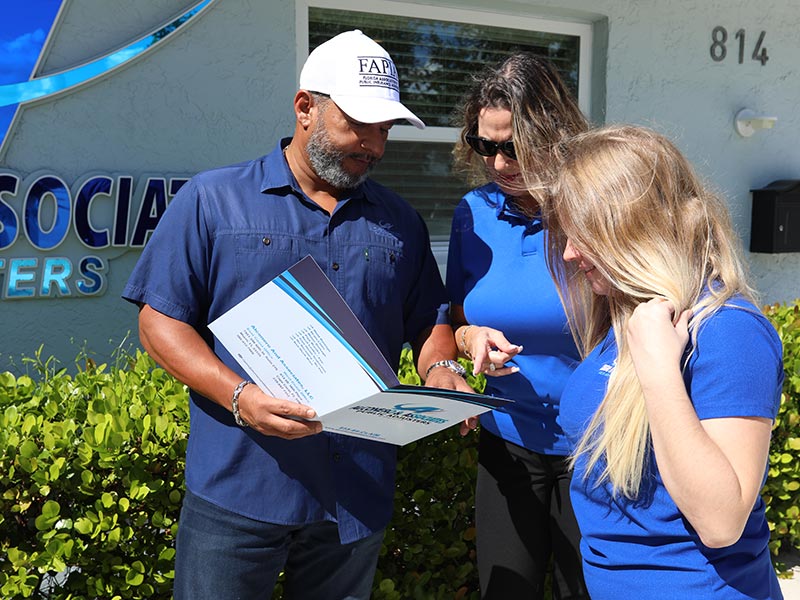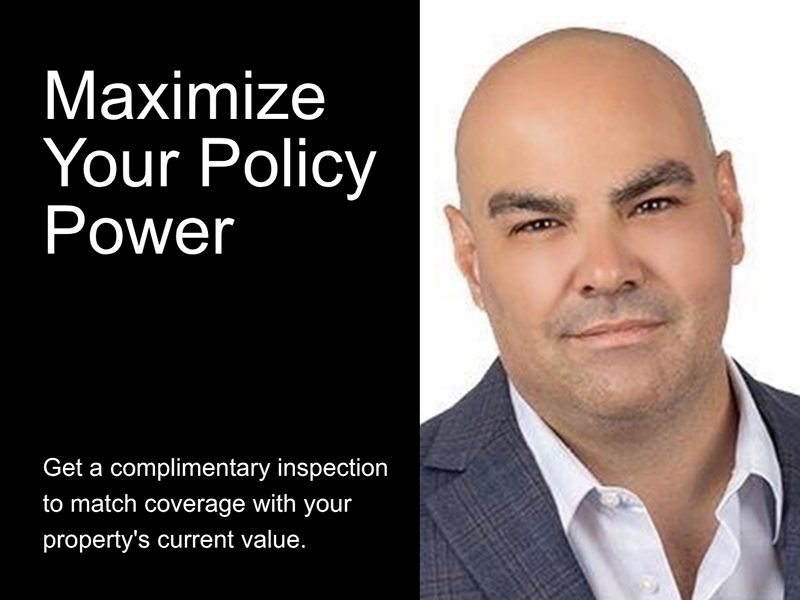
PA License Number for Florida P197242 | Wind Certified Umpire and Appraiser | IAUA Associate Appraiser | FAPIA Associates Member and Ambassador | Puerto Rico License 3000461294
Alconero public adjuster
Florida Insurance Claim Denials
Understanding the "Negligence" Defense and Policy Exclusions
Claim Your Free Annual Property & Policy Inspection Before Spots Run Out
Simply fill out the form below, and we’ll contact you shortly.
This comprehensive resource on Florida Insurance Claim Denials provides an in-depth legal analysis of how insurance carriers utilize policyholder negligence as a defense to deny residential and commercial property claims. The article contrasts Florida’s comparative negligence statute (Fla. Stat. §768.81) for tort claims with the contractual obligations found in property insurance policies, specifically addressing exclusions for wear and tear, faulty workmanship, and failure to mitigate damages. It clarifies critical legal standards regarding late notice prejudice, the burden of proof in coverage disputes, and the concurrent cause doctrine under Florida law. By referencing key statutes such as Fla. Stat. §627.70132 and §624.155, this guide serves as an authoritative reference for understanding the intersection of policy exclusions, homeowner duties, and bad faith litigation in the context of Florida property insurance claims.

ALCONERO AND ASSOCIATES PUBLIC ADJUSTERS
For residential and commercial property owners in Florida, receiving an insurance claim denial letter can be devastating, especially when the property has suffered significant damage from a storm, water leak, or fire. Few things are more frustrating than being told that the damage to your property is essentially your own fault.
Insurance companies in Florida frequently invoke a policyholder’s “negligence” as a primary reason to deny home or commercial property damage claims. When an insurer uses this term, they are generally referring to the insured’s alleged failure to exercise proper care in preventing the loss or reducing its severity once it occurred. For example, an insurance carrier might allege that a homeowner “neglected” their property by failing to maintain an aging roof, delaying notification of the damage to the insurer, or allowing improper repairs to be made.
Understanding the legal basis for Florida insurance claim denials based on negligence is critical for policyholders. This comprehensive guide examines how Florida law interprets these arguments, the common scenarios cited by insurers—such as wear and tear, late reporting, and faulty workmanship—and the evidence insurance companies rely on to justify denying a claim.
It is vital to distinguish how negligence works in personal injury lawsuits versus how it applies to first-party property insurance claims in Florida.
Florida is a comparative negligence state for tort claims (lawsuits involving personal injury or accidents). In those scenarios, an injured party’s financial recovery can be reduced by their percentage of fault. However, the research indicates that in first-party property insurance claims, comparative fault does not directly determine coverage. Your homeowners insurer generally cannot outright void your claim solely because you were partially negligent.
Instead, a property insurance policy in Florida is a contract governed by state law. This contract spells out the specific duties of both the insurer and the insured. If a policyholder fails to fulfill their contractual obligations—such as properly maintaining the property or complying with post-loss duties like providing prompt notice—the insurer may use specific policy exclusions to deny coverage.
Therefore, when facing insurance claim denials in Florida based on negligence, the battleground is typically whether a specific policy exclusion applies, not a general assessment of blame. Florida law generally requires that an insurer prove the policyholder’s negligence directly caused or materially contributed to the loss before denying coverage based on a policy exclusion. Minor oversights by the insured usually do not justify a full claim denial if a covered peril, such as a hurricane or sudden accidental water discharge, was the primary cause of the damage.
One of the most common reasons for Florida insurance claim denials is the argument that the damage resulted from long-term lack of maintenance or ordinary wear and tear, rather than a sudden, distinct, covered event.
Florida homeowners policies almost universally exclude damage caused by wear, tear, deterioration, and neglect as a matter of contract. Insurance is designed to cover sudden, accidental losses, not the inevitable aging of a property. If a roof leaks or collapses, an insurer may investigate to find evidence that the roof was in disrepair for years prior to the event. They will look for rusted pipes, rotted wood, pre-existing cracks, or old water stains to classify the loss as gradual deterioration.
Florida Law’s Take on Concurrent Causes: Florida courts recognize these wear-and-tear exclusions as valid. However, the law provides significant protection for policyholders in cases involving “concurrent causes.” If a covered peril—such as hurricane-force winds—triggers or contributes to damage on an older property, the insurer bears the burden to prove that an exclusion for neglect or deterioration strictly applies to bar coverage entirely.
For example, if a homeowner makes a claim for roof damage after a major storm, an adjuster might note aged shingles and deny the claim as “normal deterioration.” However, if the homeowner can provide an engineering report indicating that wind caused new structural breaches allowing rain to enter, Florida law suggests the claim should not be denied solely because the roof was old. The insurer would need to prove the damage resulted purely from wear and tear, without the contributing factor of the storm. Simply pointing to poor past maintenance may not hold up if evidence shows a sudden incident was involved.
Another frequent ground for denial related to policyholder negligence is the failure to report the loss promptly. Property policies universally require the insured to give “prompt” or “immediate” notice of damage. Insurers argue that delayed reporting is negligent because it impedes their ability to investigate the cause and extent of the damage accurately.
If a homeowner notices damage from a plumbing leak in January but waits until July to file a claim—perhaps after conditions have changed or evidence is lost—the insurer will likely claim they were “prejudiced” in their investigation. Florida has also codified specific deadlines for certain claims; for instance, new hurricane or windstorm claims generally must be reported within one year of the event.
The Legal Battle Over “Prejudice”: Under Florida law, late notice of a claim can justify a denial, but generally only if the insurer was actually prejudiced by the delay. Historically, Florida courts imposed a rebuttable presumption of prejudice in favor of the insurer when notice was late, meaning the policyholder had the burden to prove the delay did not harm the insurer’s investigation.
However, recent case law has shown evolution on this point. Some courts have reaffirmed that an insurer must affirmatively show how they were prejudiced to enforce a late-notice denial. The conflict in case law means that depending on the jurisdiction within Florida, the burden of proof regarding whether the delay harmed the investigation could shift.
Regardless of the shifting legal burdens, policyholders should understand that waiting too long to file is a major risk factor for Florida insurance claim denials.
§624.155 tells you how and when you can sue the insurance company for wrongdoing (it’s harder now than before 2023).
[more]
§627.70132 tells you when you must file your paperwork (your deadlines are shorter now).
Insurance is meant to cover accidental damage, not the cost of shoddy workmanship by contractors or DIY efforts. If property damage is traced back to improper repairs, renovations, or faulty construction, insurers frequently deny coverage based on specific “faulty workmanship” policy exclusions.
The rationale is that an insurance policy is not a warranty for poor work. For example, if a homeowner hires an unlicensed contractor who fails to seal a roof addition properly, leading to extensive rain damage inside, the insurer will likely cite the exclusion for losses caused by “faulty, inadequate or defective workmanship.”
Florida courts generally enforce these exclusions if the policy language is clear. Case law has confirmed that such exclusions can apply both to the process of the faulty work and the finished product. An important nuance, however, is the “ensuing loss” provision found in many policies. While the defective work itself to fix the roof might not be covered, if that defect leads to a separate, covered peril—such as a subsequent fire caused by faulty wiring—the ensuing fire damage might still be covered.
Beyond pre-loss maintenance, policyholders have a strict duty after a loss occurs to mitigate further damage. This means once you discover damage, you must take reasonable steps to protect the property from continuing harm.
If a pipe bursts, the insurer expects the property owner to shut off the water and begin water extraction promptly. If a storm breaks a window, the owner must board it up to prevent further rain intrusion. If a policyholder is negligent in this post-loss obligation (for example, leaving a flooded room untreated for weeks, leading to massive mold growth) the insurer may invoke the “neglect” exclusion to deny that portion of the claim.
Florida law upholds this principle. Insurers generally cover the initial direct damage from a covered peril, but they can justifiably refuse payment for aggravation of the loss due to the policyholder’s inaction. The insurer typically must demonstrate a causal link, showing that the lack of mitigation led to additional damage beyond what the initial event caused.

When facing insurance claim denials in Florida, it is helpful to understand the evidence insurers compile to support their arguments of negligence.
Policy Citations: The denial letter is required by Florida law to provide a reasonable explanation for the denial, explicitly referencing the specific policy provisions (e.g., the “Neglect” exclusion or “Duties After Loss” section).
Inspection Reports and Photos: Adjusters and engineers are deployed to inspect damage. Their photos are crucial evidence used to argue long-term deterioration. Pictures of rust, rot, or prior patch jobs are used to support “wear and tear” arguments. Conversely, photos showing a lack of temporary repairs (like an untarped roof hole) support “failure to mitigate” denials.
Expert Evaluations: Insurers often enlist forensic engineers or mold assessors to provide technical reports on causation and timelines. An expert might opine that a pipe leaked for months rather than suddenly bursting, supporting a denial based on gradual deterioration or late notice.
Requests for Maintenance Records: Insurers will ask for logs, invoices, or inspection reports related to the damaged property (roof, plumbing, HVAC). A lack of documentation can be used by the insurer to infer neglect or unable to prove that necessary repairs were undertaken.
Timelines: Establishing a timeline from when damage likely occurred to when it was reported is a key tactic for late notice denials. A large gap raises a presumption that the insured did not act diligently.

Received a property insurance denial letter claiming “negligence”? In Florida, this is a common tactic, but it’s vital to understand what it actually means legally.
When a Florida insurer denies a claim based on “negligence,” they aren’t typically talking about comparative fault as in a car accident lawsuit. Instead, they are arguing you failed to fulfill a specific contractual duty within your policy.
Wear and Tear/Lack of Maintenance: Arguing the damage was gradual deterioration, not a sudden covered event caused by a storm or accident.
Late Notice: Claiming you waited too long to report the damage, prejudicing their ability to investigate. (Florida law on the burden of proof here is complex and evolving).
Faulty Workmanship: Citing exclusions for damage caused by improper repairs or contractors. Insurance isn’t a warranty for bad work.
Failure to Mitigate: Alleging you didn’t take reasonable steps after the loss to prevent further damage (e.g., failing to tarp a roof or dry out water).
Florida law provides checks and balances. For example, under the “concurrent cause” doctrine, if a major storm damages an older roof, the insurer often has the burden to prove that wear and tear was the sole cause to fully deny coverage.
An allegation of negligence is a significant hurdle, but it is not always the final word on your claim.

